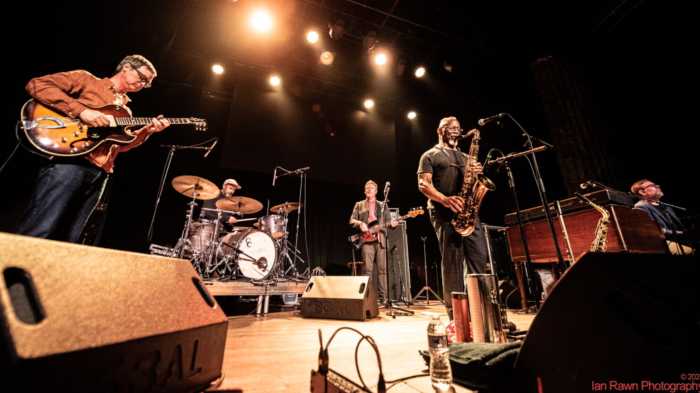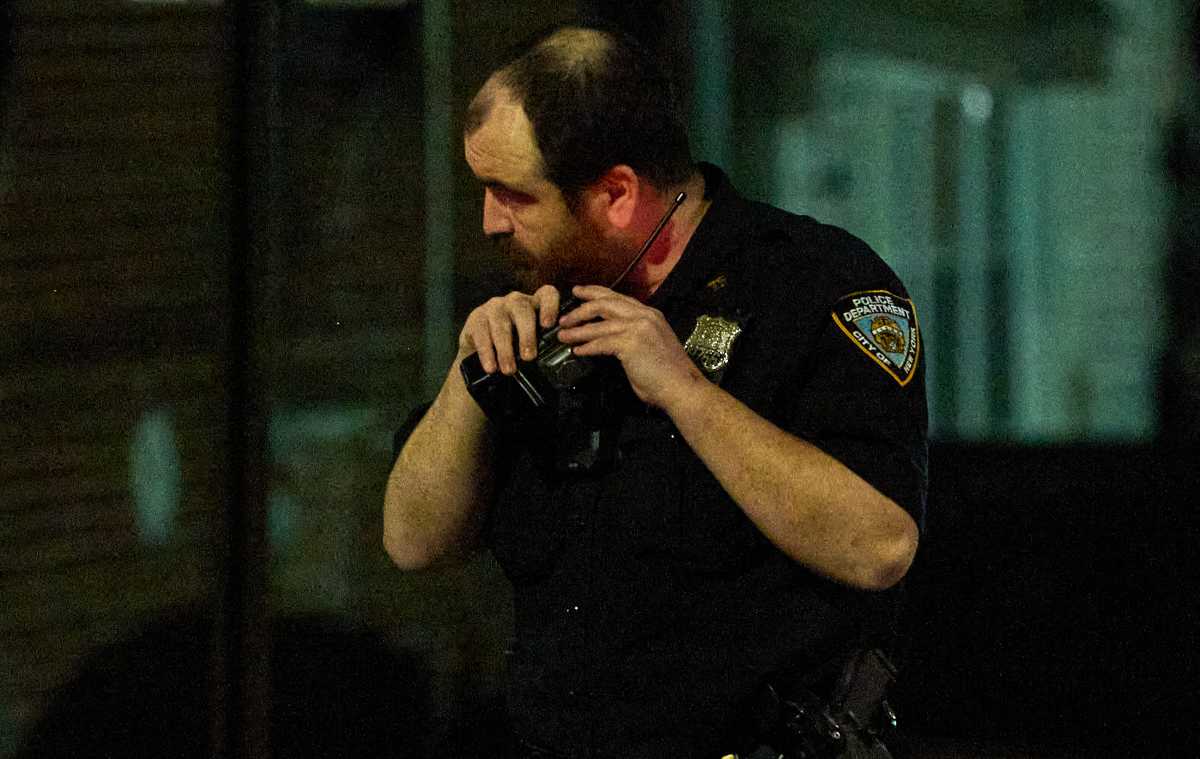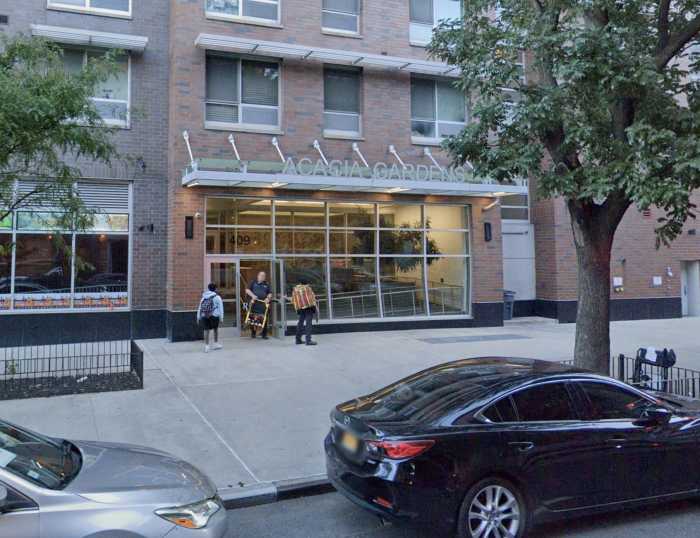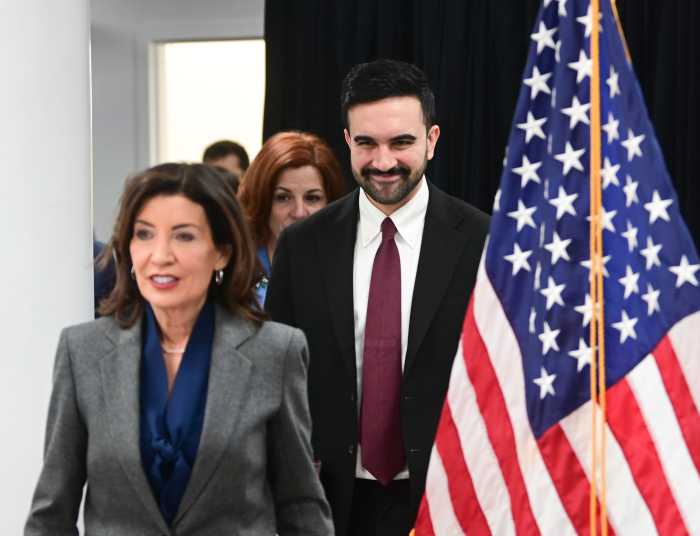Brooklyn Philharmonic conductor and music director Robert
Spano has announced that he will not renew his contract with
the financially strapped orchestra and will step down at the
end of the 2003-04 season, the 50th anniversary year of the Brooklyn
Philharmonic.
Spano told GO Brooklyn on Tuesday that he will take on the title
of music advisor for the orchestra in 2004-05 and will aid the
orchestra in its search for a new music director.
Philharmonic Board President Craig Matthews (retired vice chairman
and COO of Keyspan Energy) said in a release that the Philharmonic
has begun the search for a new music director and confirmed that
Spano would be a consultant in this process.
Spano, who came to the Philharmonic in 1996, will assume the
title of principal guest conductor for the orchestra’s 2005-06
and 2006-07 seasons.
"He’s internationally sought out as a major conductor,"
said Philharmonic executive director Catherine Cahill. "We
are very pleased he’s going to continue an active role with us
even when this contract is expired."
Hints that the maestro might be distracted by other commitments
– he’s also the Atlanta Symphony Orchestra’s music director –
materialized at last May’s Brooklyn Philharmonic gala fundraiser
at the Brooklyn Museum of Art when Spano was a no-show.
Spano, in a telephone interview from Atlanta Tuesday, said he
had already given up his apartment in Brooklyn and that "demands
on my time and energy meant it would be inevitable that I would
have to leave. But I didn’t want to. This way I can relinquish
the responsibilities of music director and still have the joy
of working with the orchestra."
Because of budget shortfalls, the orchestra had been forced to
reprogram its 2000-01 and 2001-02 seasons midway through. Rather
than an orchestra performance on Feb. 15 and Feb. 16 of this
year at the Brooklyn Academy of Music’s opera house, the Philharmonic
produced a piano recital at Baptist Temple Church on Schermerhorn
Street. The change of venue resulted in a ticket shuffle for
Philharmonic subscribers, and the orchestra’s union, Local 802
of the American Federation of Musicians, seized upon the opportunity
to turn their contract negotiations into a public brouhaha.
Spano, however, said he remains enamored with the Brooklyn Philharmonic
and that if he was afraid of budget shortfalls, he would have
changed vocations a long time ago.
"Last season’s changes were disheartening for everybody,
but the reason we did it, is so we wouldn’t accumulate new debt,"
said Spano. "I’m convinced we did the right thing. After
9-11, I know a lot of organizations have said this, but for us,
it was really true. After that happened it had a serious impact
on our budget. Lots of funding went away. We adjusted to new
realities, and it was difficult.
"Now, here in this season, however painful it was and is,
we have a real commitment to good planning, so that doesn’t happen,"
the maestro said. "This season is unfolding as planned."
Cahill told GO Brooklyn in February that both she and Spano had
taken "massive" pay cuts because of the budget crunch,
but Spano said the Philharmonic’s financial challenges were not
the reason he opted out as music director.
"If that was a reason to leave, I would have left a long
time ago," he said. "In the music world, [budget shortfalls]
are not an uncommon problem. It’s not something you can run away
from. You have to meet it head on.
"I’ve had to recognize the realities of my own life. That’s
very difficult. I don’t have a lot of reasons to want to leave
[the Brooklyn Philharmonic], but I have a lot of reasons to stay,"
said Spano. "That’s what is so nice about the principal
guest conductor arrangement. It’s better rather than a goodbye."
Spano said that he would work in an advisory capacity with the
Philharmonic in choosing a new music director.
Spano has been widely praised for his work with the Philharmonic,
and his successor will have big shoes to fill.
"The most critical thing for Brooklyn Philharmonic leadership,"
said Spano, "meaning the board and staff and whoever the
new music director is, is to have vision and commitment to artistic
excellence. What fuels us all – I love the people I work with
– is we all have a passion for what we’re doing, and without
that passion nothing will work."
Spano would also like the Philharmonic’s programming to continue
the identity he and his predecessors, such as Lukas Foss and
Dennis Russell Davies have helped it create.
"Our concerts are unique," said Spano. "We’re
doing things you won’t hear anywhere else in the city or presented
in a new way with a fresh perspective. That’s very important."
In a co-production with the Brooklyn Academy of Music and the
Mark Morris Dance Group, the Brooklyn Philharmonic will present
Morris’ "The Hard Nut" Dec. 17-22. The performances
will mark the 10th anniversary of that production and the grand
finale to BAM’s 20th Next Wave season. The Philharmonic, under
the baton of Robert Cole, will perform Tchaikovsky’s original
"Nutcracker" score.
"Orchestras in general are experiencing challenging fiscal
times," said Cahill, "and certainly we’ve had our troubles,
but we have been on a road to recovery. We’ve balanced our budget
for the last two seasons and reduced our accumulated deficit
by 50 percent. And we opened the season with a sold-out run of
[Osvaldo] Golijov’s ’Pasion.’
"Because of Robert’s dynamic leadership, commitment and
passion for this institution," she said, "we have this
good story to tell."
























